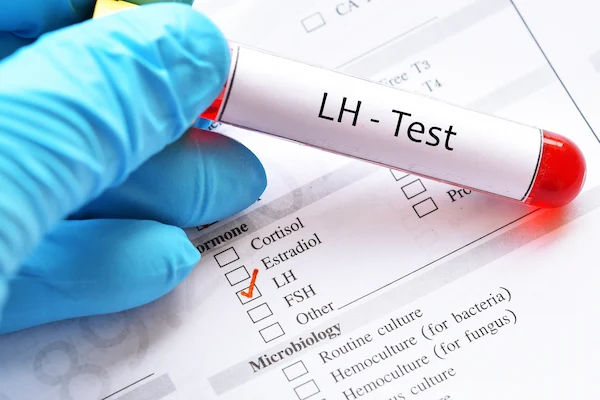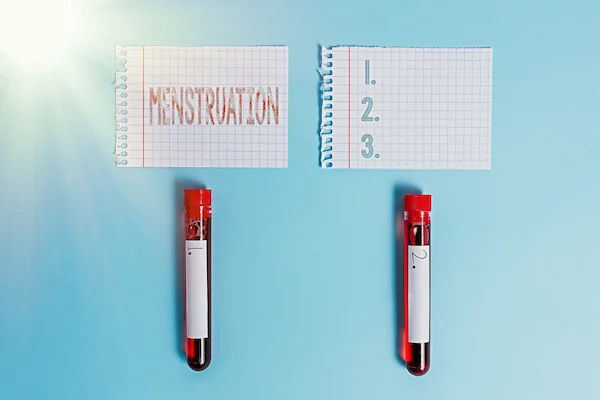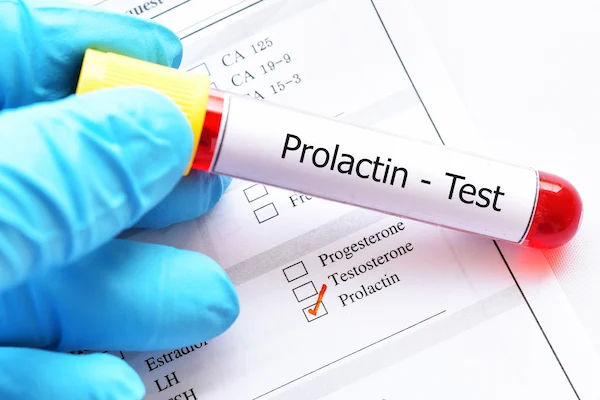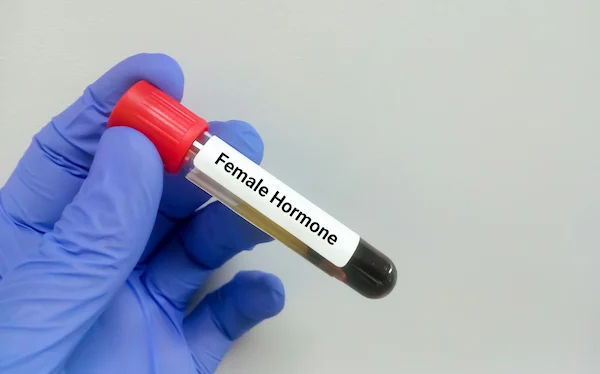Can Stress Affect Your Hormone Test Results? Here’s the Science
Can stress affect your hormone test results? Learn how emotional and physical stress impacts cortisol, progesterone, LH, FSH, and prolactin readings — and discover best practices for accurate hormone testing.

Written by
Last updated on 16th Jul, 2025
.webp?tr=q-80,f-webp,w-350,dpr-2,c-at_max 700w)
Women may feel like scheduling a hormone test after months of irregular cycles, mood swings and fatigue. However, just days before the test, an emotional conflict or a significant work deadline may leave them sleep-deprived, exhausted or overwhelmed. Some women might still choose to do the test, but later, when the test results do not come as expected, they wonder, “Could stress have distorted the outcome?”
Accurate hormone testing is essential for women in their fertility phase. Hormones such as cortisol, progesterone, prolactin, LH (luteinising hormone) and FSH (follicle-stimulating hormone) work in intricate harmony. However, a few real-life stressful events or situations can disrupt this balance and affect test reliability. This comprehensive blog will explore the science behind stress and hormone test results, clarify the cortisol vs progesterone confusion, and provide individuals with guidance on planning their tests during calm windows to gain clearer insights.
How Cortisol Interferes with Other Hormones?
Let’s understand the science of stress, as it leads the body to shift into survival mode. This evolutionary response may protect individuals in the short term, but it can disrupt their reproductive hormone levels in the long term.
What Happens Biochemically During Stress?
It is essential to understand the internal chemical shifts triggered by stress, which is crucial for accurately interpreting hormone test results.
- Progesterone Is Diverted: Cortisol and progesterone both originate from the same precursor hormone (pregnenolone). The body may prioritise cortisol production under chronic stress. This shift can reduce the amount of progesterone available, a mechanism often referred to as the ‘progesterone steal’ phenomenon.
- HPA Axis Activation: The hypothalamic-pituitary-adrenal (HPA) axis signals the adrenal glands to produce cortisol, the primary stress hormone.
- Menstrual Irregularity: Lower progesterone may delay ovulation, shorten the luteal phase and increase PMS severity.
Cortisol vs Progesterone Confusion
It is essential to understand how stress can influence the relationship between these two crucial hormones, contributing to the confusion between cortisol and progesterone. Therefore, gaining an understanding of this relationship can help avoid misinterpretation during testing.
- The Test Timing: Cortisol levels spike in the morning and decline throughout the day, while progesterone levels peak after ovulation. Testing at the wrong time may create confusion.
- Overlapping Symptoms: Anxiety, fatigue, irritability and poor sleep patterns can stem from low progesterone or high cortisol.
- Stress Skews Progesterone Readings: Progesterone testing during or immediately after a stressful episode may reflect an artificially low level.
Get Your Hormonal Health Assessed
Why LH, FSH, and Prolactin Can Fluctuate?
Stress doesn’t just have an impact on sex and adrenal hormones. It can also disturb pituitary function, which governs ovulation and fertility.
How Stress Alters Pituitary Hormones?
Stress may extend beyond affecting your adrenal system; it can disrupt critical pituitary signals that regulate the menstrual cycle and fertility.
- LH (Luteinising Hormone): Stress may delay the LH surge necessary for ovulation. This can make it challenging to determine the actual ovulation day and may lead to misinterpretation of cycle health.
- FSH (Follicle Stimulating Hormone): Though FSH is less impacted by stress, chronic anxiety can influence overall pituitary signalling. This may lead to mild fluctuations.
- Prolactin: This hormone is particularly stress-sensitive. Emotional or physical stress, as well as poor sleep, can lead to higher prolactin levels.
Implications for Testing
It is essential to understand how stress can impact hormone levels, which can help individuals avoid misdiagnosis. This may ensure that test results accurately reflect their true hormonal status.
- Misdiagnosed Anovulation: If the rise in LH is delayed or suppressed, the test might wrongly indicate that one didn’t ovulate.
- False Elevations: A high prolactin result may suggest a problem, but it may only be a stress reaction.
- Cycle Mapping Errors: Conducting hormone tests without considering the impact of stress may lead to misinterpretation of the cycle pattern and hormone rhythm.
When to Avoid Testing After Stress Events?
To gain a clearer picture of hormonal health, individuals must consider the impact of recent physical or emotional stress.
Stress Events that can Affect Hormonal Balance
For accurate test interpretation, it is essential first to recognise the different types of stress that can affect hormonal balance.
- Physical injury or illness
- Emotional conflicts (grief, relationship stress, major arguments)
- Travel fatigue or jet lag
- Poor sleep for multiple nights
- Exams or intense work deadlines
Best Practice Guidelines
Below are a few guidelines one can follow:
- Tracking Cycle with Stress Levels: One can use an app or a diary to note emotional triggers and hormonal symptoms.
- Waiting at least 48–72 Hours: One can wait to get the test done for at least 2–3 days after an acute stress event.
- Delaying Hormone Panels: If one is in the middle of an emotionally intense life phase, they can delay hormone panels, as results may not reflect their baseline.
Why It Matters?
Taking a hormone test immediately after expressing a stressful confrontation or a sleepless week may not yield accurate results or values. One can conduct a repeat test during a well-rested and calm window, which may help yield proper results.
How to Prep for a More Accurate Report?
The more one controls the variables surrounding their hormone test, the more precise the results may be.
Below is how individuals can optimise their environment and body beforehand:
Preparation Tips
- Preparing the mind and body before taking the test can significantly help improve the reliability and accuracy of the hormone report.
- Individuals should aim to get at least 7–8 hours of uninterrupted sleep each night.
- Minimising caffeine and sugar can help stimulate cortisol and mask their natural rhythms.
- Individuals can schedule testing during the early follicular phase, which typically occurs on days 2-5 of their menstrual cycle. This can be ideal for testing baseline hormones, such as FSH and LH.
- Strenuous workouts can temporarily spike cortisol levels; therefore, intense activities should be avoided for 24 hours prior.
- For progesterone, one can test around day 21 of a 28-day cycle, but only if they have ovulated.
- It is essential to stay hydrated, as dehydration can cause blood volume to decrease and alter hormone levels slightly.
Mindful Habits for Better Accuracy
For test preparation, it is essential to incorporate calming routines and emotional balance. This may lead to significantly more consistent and meaningful hormone readings.
- Before making appointments, individuals can avoid arguments or emotional news.
- Individuals can journal their cycle and symptoms, which may help in correlating test results with how they feel.
- Practising breathing exercises or meditation on the morning of their test can also help.
Book Stress-Adjusted Testing with Apollo 24|7
One can book a stress and hormone test easily with Apollo 24|7 and schedule their hormone panels with expert guidance. This may help ensure their results are both accurate and contextualised.
How does Apollo 24|7 stand out?
Below are a few factors that have helped the platform stay distinctive:
- NABL-Certified Labs: Apollo 24|7 offers reliable and standardised testing protocols.
- At-Home Collection: The platform offers individuals the ease and convenience of having their samples collected at home or their preferred location at a time that suits them.
- Integrated Hormone + Stress Panels: Individuals can also bundle tests to get a clearer picture.
- Online Guidance: Individuals can discuss their concerns and reports with the platform’s health advisors.
How to Book a Stress or Hormone Test at Apollo 24|7?
Here’s how one can book from the platform:
- Visit the Apollo 24|7 app or website
- Search for Apollo basic hormone check
- Select the preferred time, lab, or home collection option
- Pay online with a secure and safe payment gateway
- Get reports digitally with optional online consultation
Final Thoughts
Hormones do not operate in isolation. They react to emotions, environment, and physical well-being. Under stress, the hormone readings can show an inaccurate picture, which may be misleading. This may ultimately delay the right diagnosis and treatment. Hence, understanding the link between stress and hormone tests is crucial, especially during fertility years when hormonal balance is essential.
Additionally, many women report receiving conflicting hormone reports, which do not provide them any clarity. Often, these discrepancies arise from poor timing and unacknowledged stress, which act as invisible disruptors. That is why it is essential to work closely with a healthcare provider to get the tests done in a timely manner and to consider the cycle and emotional state, which can lead to a more precise diagnosis and treatment. Results reflect the true hormonal state when one plans the test mindfully and allows the body to reset after stress.
If you’re still feeling confused by the signs of cortisol vs progesterone, don’t guess or stress more; test smart. Let the hormone report be a tool for clarity, not confusion. Book your stress-aware hormone test with Apollo 24|7 today and take control of your reproductive health on your own terms.



.webp)

